Please support Game Informer. Print magazine subscriptions are less than $2 per issue
Why Are Zombies Still So Popular In Video Games?
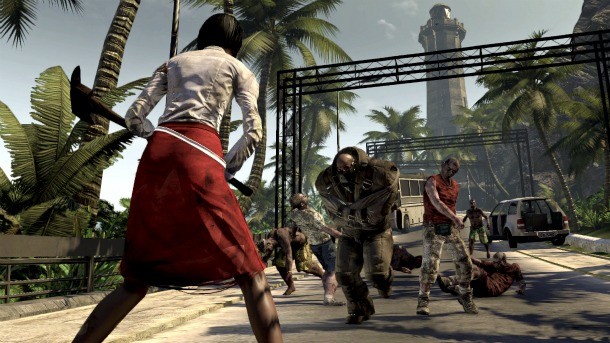
The only thing more played out than zombies in video games is people complaining about zombies in video games. Yet despite the constant declarations from gamers that zombies are long past their expiration date, developers keep putting them in games, consumers keep buying them, and I can't stop playing them. So why are zombies so popular?
That question was lodged in my brain last night as I finished up a session of Dead Island with my co-worker Tim Turi. A week ago I had served as his co-op partner while he was playing the game for review, and since then we started a second playthrough just for fun. Prior to logging off for the night I had checked my stats page - it stated that I had killed 500 zombies in the game (499 zombies and 1 human to be exact, but that guy totally had it coming). This was on top of the untold undead I slaughtered in our first playthrough, not to mention the cumulative stats I've racked up in all the Left 4 Deads, Dead Risings, Resident Evils, etc.
Little changes between zombies from one video game to the next. Even the unique variants fall into similar categories. Overpowered zombie capable of ramming things and knocking you over? Check. Fat zombie that explodes when killed? Yep. Barfy dude? Naturally. Sometimes they're fast, sometimes they're slow, but a gamer's modus operandi is always to aim for the head.
So why are zombies still terrorizing gamers? By the time I crawled into bed that evening, I had a pretty good list of reasons why.
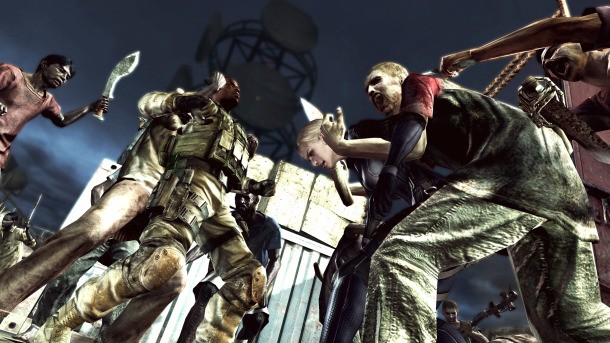
Zombie Games Make Money
Thanks for reading.
In all seriousness, however, it would be foolish to overlook the importance that sales potential has on a developer or publisher when creating a game. Game development is a risky business. It requires paying massive amounts of money upfront in hopes that your idea will prove popular with your consumers. Zombies are a proven commodity. There's been no shortage of successful zombie-themed video games in the past decade, and even games like Call of Duty: World at War and Red Dead Redemption have enjoyed increased attention by shoehorning in modes featuring the undead. I'm sure somewhere in the world there's an analyst who could tell you just how much more money you could expect to make by adding zombies to your game, and there aren't many developers who can afford the luxury of turning down a sure thing. That doesn't answer the question of why gamers buy zombie games, however. That's reason #2.
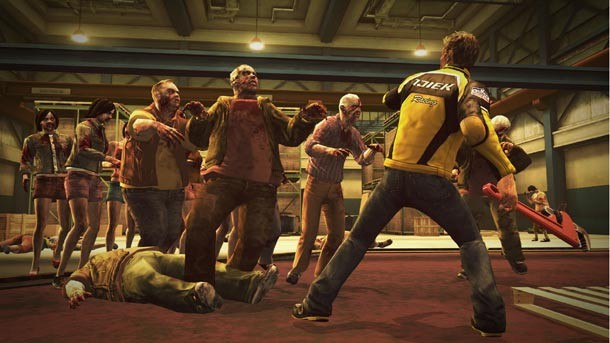
Zombie Games Feature Innovation
Zombie haters may scoff at the above statement, citing the
clichéd nature of zombies as the primary reason behind their hatred. So let's
go down the list of some popular zombie games.
Left 4 Dead introduced FPS fans to a new era in co-op gaming, with level design and gameplay mechanics that force players to work together. The Dead Rising series has given horror fans two huge open cities to explore, along with a deep weapon-crafting system and a gonzo sense of humor. The Zombies modes in Treyarch's Call of Duty titles provide a refreshing co-op alternative to a franchise that has always focused on competitive multiplayer. Plants vs. Zombies reinvigorated the tower defense genre, while making gamers laugh. The Resident Evil series has defined and redefined the survival horror genre for a decade and a half. Even Half-Life 2 had zombies in it, and it's...Half-Life 2.
It's not that zombies are the driving force for innovation in these games - it just so happens that some really innovative games have featured zombies as a main enemy type. As long as zombie games continue to introduce new and interesting mechanics, gamers will continue to enjoy playing them. And there are more reasons while developers will keep putting zombies in their games.
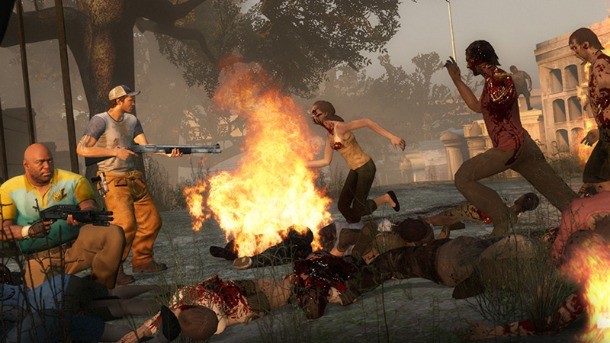
Zombies Make Ideal Foes
Making realistic enemies is hard. Mimicking basic human behavior is a feat in
and of itself, but creating enemy AI capable of strategizing - and adapting
that strategy in response to the behavior of the player - is next to
impossible. But what if the enemies you're programming are supposed to be
really, really stupid?
A zombie's bag of tricks must seem enticingly primitive to a developer. What more does an undead foe do besides shamble clumsily toward nearby players and try to bite them? AI hiccups that would be unforgivable for an elite enemy soldier seem natural for a walking corpse. Can't maneuver your way around a garbage can? Having trouble figuring out how a doorway works? Incapable of using a ladder? Enroll in your nearest undead army today.
It's not just that zombies are stupid, however. Out of all the enemies I've killed in video games in my lifetime, none have been more enjoyable to dispatch than zombies. Whether you're slicing off limbs, curb-stomping their melons, or shotgunning them to pieces like that terrifying scene in RoboCop, slaughtering zombies is a raucous, guilt-free affair. In an age where video game violence is an ongoing (and important) topic of discussion, no one thinks twice about re-killing the undead.
It also doesn't hurt that fighting melee-based enemies is considerably easier than gun-toting opponents. When was the last time you felt like you were the victim of a cheap shot in a zombie game, or was confused about where an attack was coming from? It's the snarling, rabid dude who's biting you in the face!
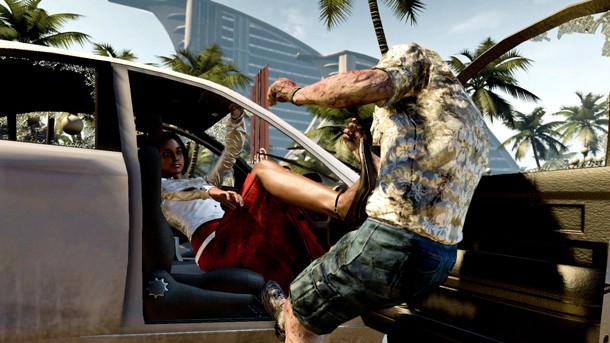
Know Your Zombie History
For decades writers and filmmakers have tapped into a multitude
of phobias dealing with the undead. Violence. Cannibalism. Infectious diseases.
Beneath these base fears lies a deeper host of concerns that story-tellers have
explored, fears of alienation, the loss and betrayal of the people closest to
you, and of being confronted with your own mortality in the most literal and brutal
way possible.
The zombie apocalypse is a rich format for telling stories, one that's already well established and highly conducive to gaming. Even though most video games fail to tap into any of these elements, the ideas have already been planted in the player's mind through other media. All developers have to do is apply the template to a new location (such as a tropical island resort or Las Vegas knockoff) or era (like the Wild West or World War II), and gamers have something that feels fresh and familiar at the same time. Most horror scenarios feel derivative anyway - why spend time and money trying to reinvent the wheel when you can improve upon something that's already popular?
Despite the plethora of zombie games on the market, a lot of the themes that make movies like Dawn of the Dead and television shows like The Walking Dead popular have yet to be explored in a video game. While I too suffer from zombie fatigue every now and then, as long as titles with new ideas and gameplay mechanics continue to flesh out the concept of a zombie Armageddon, I'll keep playing them.










